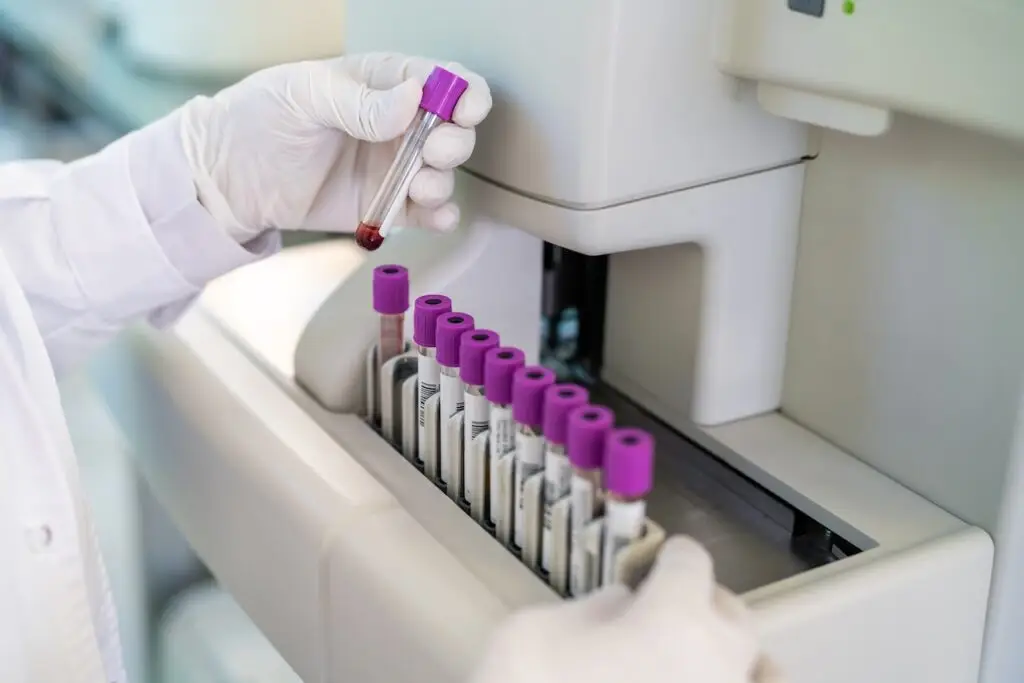What to expect with HR+/HER2- metastatic breast cancer
During your treatment for HR+/HER2- metastatic breast cancer (mBC), regular monitoring is an important part of your care. Monitoring helps ensure that your treatment is effective and allows your care team to adjust your treatment if needed. With monitoring, your doctors will perform tests to track how your cancer is responding to treatment and check for any side effects.
Common monitoring tests
- Blood tests:
- Complete Blood Count (CBC): Monitors your red blood cells, white blood cells, and platelets to ensure your body is handling treatment.
- Liver and kidney function tests: Check how well your organs are functioning since treatments can affect these systems.
- Tumor markers (CA 15-3, CEA, CA 27.29): Elevated blood levels of some proteins may suggest the cancer is growing or spreading, although other factors can also influence these marker levels.
- Imaging scans:
- CT scan or MRI: Provide detailed images of the chest, abdomen, and pelvis to monitor tumors for growth or spread.
- PET scan: Identifies cancer activity by highlighting areas of high metabolic activity.
- Bone scans: Evaluate bone health if there is a risk of bone metastases.
- Physical exams: Your doctor may check for new symptoms, pain, or swelling, which could indicate disease progression or side effects from treatment.
What are doctors looking for?
Evidence-based guidance powered by NCCN Guidelines®
Personalized treatment plans shaped by the latest oncology standards—tailored to your diagnosis.
Get started
View your personalized treatment plan in the Outcomes4Me app
Use your diagnosis to unlock personalized NCCN Guidelines®-aligned recommendations.
Continue in app
Your doctors review these test results to see if your HR+, HER2- mBCr is responding to treatment, remaining stable, or progressing. They also check for any signs of treatment side effects that may require adjustments to your treatment. Stable scans or decreasing tumor marker levels are generally positive signs, while increased tumor size or new lesions may indicate that treatment is not working as well as hoped.
Frequency of monitoring
Monitoring schedules vary, but many patients undergo blood tests and imaging scans every 2 to 6 months. If your cancer is stable, your doctor may space out the tests. However, if your cancer progresses or if new symptoms arise, additional tests may be needed.
When results show a problem
If your results indicate that the cancer is growing or if your symptoms or side effects are intolerable, your doctor may recommend adjusting your treatment plan. This is a shared decision-making process, where your preferences are taken into account. Adjusting your treatment plan could mean:
- Switching to a different therapy: If your current treatment is no longer effective or is causing serious side effects, your care team might suggest a different medication. Adding supportive care: If side effects are interfering with your quality of life, supportive treatments like physical therapy, medicines to alleviate your symptoms, or medication adjustments may help.
- Considering clinical trials: You may have access to new therapies through clinical trials.
Your role in monitoring
Metastatic breast cancer is a chronic disease and monitoring plays an important role in its long-term management. You can actively participate in the routine monitoring of your treatment by:
- Keeping your appointments for tests and scans: It might feel challenging to manage all of your appointments; if you don’t have a loved one who can assist you, ask your nurse navigator if there are resources in your area to help you with transportation or other needs.
- Keeping a record of your test results: Make sure to ask your doctor to explain your test results, including what they mean.
- Communicating any concerns to your care team: If you have any concerns about side effects, symptoms, or disease progression, let the team know and discuss your options with them instead of discontinuing your regimen.
You can connect with other patients living with mBC in our private Outcomes4Me Community forums.
Related Topics
Personalized support for real care decisions
Understand your diagnosis, explore clinical trials, and track symptoms--all in one place.
Get started
Compare treatments, prepare for appointments, and track side effects—all in the app
Built for your diagnosis, Outcomes4Me gives you the tools to make confident, informed decisions—right when you need them.
Continue in app






